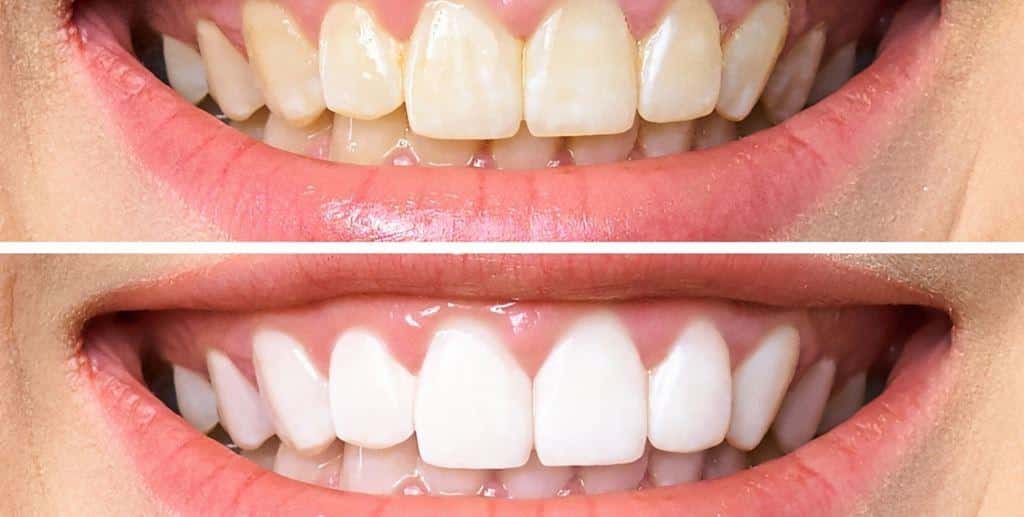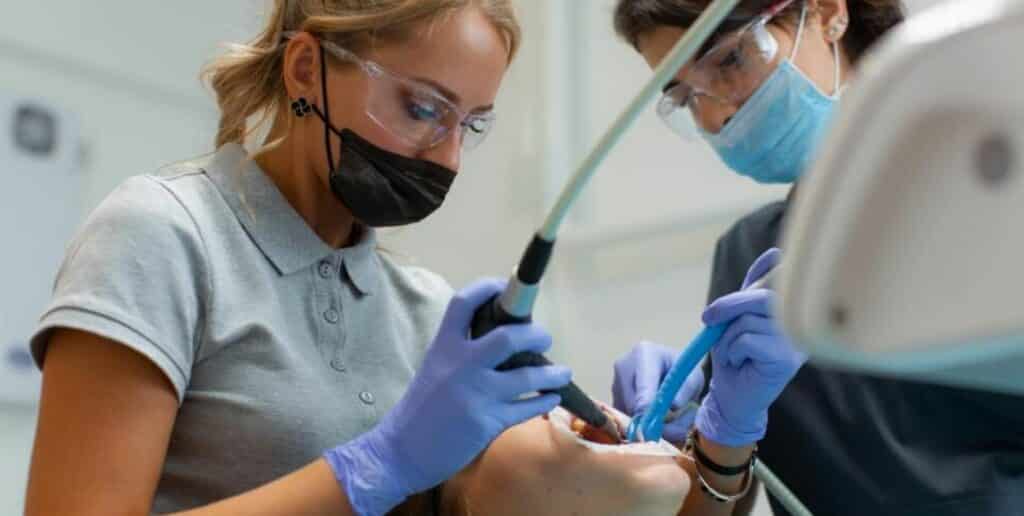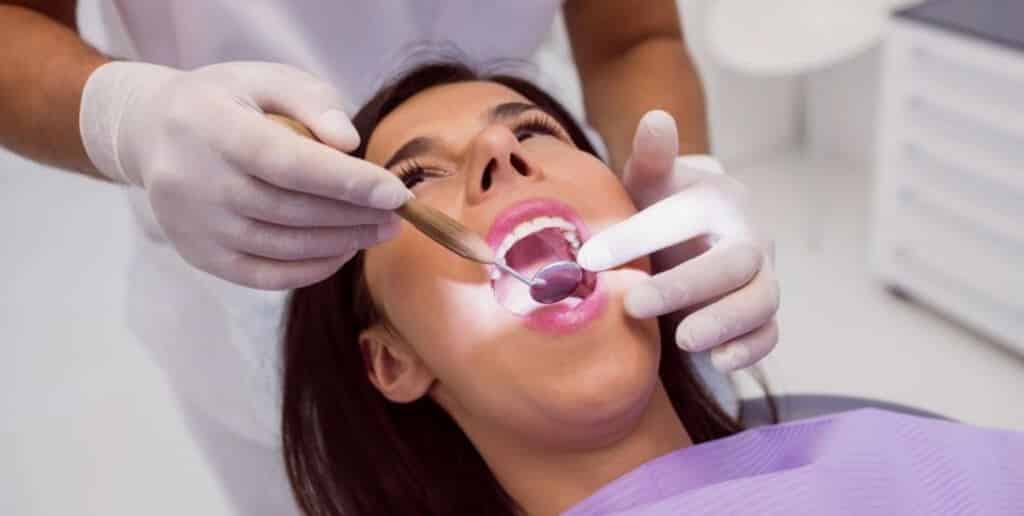Tartar is a problem faced by as many as 68% adults! What is it? It is a yellow or brown deposit that remains on plaque. It is caused by the build-up of food, saliva and bacteria inside the mouth. If not removed, it can even lead to tooth loss.
Did you know that only 16% of Poles floss their teeth regularly? This leads to gum problems, teeth turn yellow, look unsightly and can end up with periodontitis and loose teeth.
What is tartar on teeth?
Tartar is a yellow or brown deposit, more precisely a mineralised plaque. This appears just a few hours after brushing the teeth. It is formed by the accumulation of food, saliva and bacteria inside the mouth.
If these are not removed by regular brushing and flossing, as well as rinsing the mouth with a special mouthwash, decay or tartar can develop.

How do I remove tartar?
The tartar that forms on the teeth is strongly linked to the tooth enamel. This means that only a dentist can help to remove it. If you are curious about how to remove tartar and what treatments will help you maintain good oral hygiene, read our article "Dental hygiene in the UK - scaling, tooth sandblasting, polishing and fluoridation".
In brief, among the hygienization procedures is, among others, scaling. This is a procedure that involves removing tartar that has accumulated in the mouth, both from the visible parts of the teeth, as well as the interdental spaces and subgingival parts of the teeth.
Of course, scaling is not everything. If you are going to the dentist, it is also worthwhile to have your teeth sandblasted, polished and fluoridated. Full hygienization is carried out in our office - price is £160, but it is not always necessary to perform all of these procedures.
Why is hygiene so important?
Hygiene is also an opportunity for your dentist to check the state of your mouth. And, if the need arises, a special treatment will be created for you treatment plan. This is a detailed breakdown of which teeth need treatment. Whether missing teeth need to be restored or braces applied so you can enjoy straight teeth.
IMPORTANT: Many people skip going to the dentist or visits the dentist's surgery only in case of pain, arguing that their decision is too expensive. Unfortunately, such an approach can result in a worsening of problems in the mouth and thus in longer and more costly treatment. Regular visits can protect you from this.
And if you already have serious dental problems and don't even want to think about the amount you would have to spend - rest assured we have two pieces of good information.
The first - treatment in the UK often costs the same as in Poland, and is sometimes even cheaper. Therefore, it is best to make an appointment, during which we will provide you with a treatment plan and all your options.
Secondly - at our practice, you can spread the entire amount of your dental treatment into instalments that are convenient for you. Importantly, the first 12 months are zero interest. You can read more about this in our article "Teeth on credit: dental treatment on hire purchase", and if you have any further questions Call us. Importantly, our system is 100% secure and regulated by the Financial Conduct Authority (FCA number 619628).

Why do you need to prevent tartar build-up on your teeth?
The surface of tartar is rough, and this makes it difficult to reach and remove plaque with a toothbrush or floss. Accumulated tartar can lead to tooth decay, bad breath and gum disease. In addition, the resulting yellow plaque is unsightly and visible when smiling broadly.
In the worst case scenario, an unremoved stone Dental plaque can even lead to tooth loss. Up to 70% Poles struggle with periodontitis - and not necessarily only the elderly. Through lack of hygiene, the problem affects younger and younger people and the most common symptom is bleeding gums during brushing. Vector Paro Pro helps in the fight against periodontitiswhich is a modern way of treating this ailment.

Prevention is better than cure
If you look after your, teeth properly, you can prevent the formation of tartar. Remember to brush your teeth regularly - preferably at least 3 times a day for 2 minutes at a time. Choose a toothpaste with fluoride, which prevents plaque build-up. Don't forget to floss the spaces between your teeth, as your toothbrush cannot reach every crevice.
Remember that you only have one permanent tooth and you need to look after it. Therefore, it is necessary not only for prevention at home - daily brushing and brushing - but also for hygiene in the dental surgery. If we include a healthy diet based on eating fruit and vegetables and using a water irrigator, we can create a great recipe for a beautiful and healthy smile.

